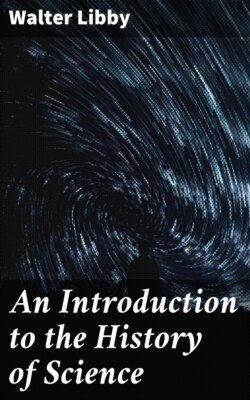Читать книгу An Introduction to the History of Science - Walter Libby - Страница 19
На сайте Литреса книга снята с продажи.
THE CLASSIFICATION OF THE SCIENCES—FRANCIS BACON
ОглавлениеTable of Contents
The preceding chapter has shown that there is a continuity in the development of single sciences. The astronomy, or the chemistry, or the mathematics, of one period depends so directly on the respective science of the foregoing period, that one feels justified in using the term "growth," or "evolution," to describe their progress. Now a vital relationship can be observed not only among different stages of the same science, but also among the different sciences. Physics, astronomy, and chemistry have much in common; geometry, trigonometry, arithmetic, and algebra are called "branches" of mathematics; zoölogy and botany are biological sciences, as having to do with living species. In the century following the death of Copernicus, two great scientists, Bacon and Descartes, compared all knowledge to a tree, of which the separate sciences are branches. They thought of all knowledge as a living organism with an interconnection or continuity of parts, and a capability of growth.
By the beginning of the seventeenth century the sciences were so considerable that in the interest of further progress a comprehensive view of the tree of knowledge, a survey of the field of learning, was needed. The task of making this survey was undertaken by Francis Bacon, Lord Verulam (1561-1626). His classification of human knowledge was celebrated, and very influential in the progress of science. He kept one clear purpose in view, namely, the control of nature by man. He wished to take stock of what had already been accomplished, to supply deficiencies, and to enlarge the bounds of human empire. He was acutely conscious that this was an enterprise too great for any one man, and he used his utmost endeavors to induce James I to become the patron of the plan. His project admits of very simple statement now; he wished to edit an encyclopedia, but feared that it might prove impossible without coöperation and without state support. He felt capable of furnishing the plans for the building, but thought it a hardship that he was compelled to serve both as architect and laborer. The worthiness of these plans was attested in the middle of the eighteenth century, when the great French Encyclopaedia was projected by Diderot and D'Alembert. The former, its chief editor and contributor, wrote in the Prospectus: "If we come out successful from this vast undertaking, we shall owe it mainly to Chancellor Bacon, who sketched the plan of a universal dictionary of sciences and arts at a time when there were not, so to speak, either arts or sciences. This extraordinary genius, when it was impossible to write a history of what men knew, wrote one of what they had to learn."
Bacon, as we shall amply see, was a firm believer in the study of the arts and occupations, and at the same time retained his devotion to principles and abstract thought. He knew that philosophy could aid the arts that supply daily needs; also that the arts and occupations enriched the field of philosophy, and that the basis of our generalizations must be the universe of things knowable. "For," he writes, "if men judge that learning should be referred to use and action, they judge well; but it is easy in this to fall into the error pointed out in the ancient fable; in which the other parts of the body found fault with the stomach, because it neither performed the office of motion as the limbs do, nor of sense, as the head does; but yet notwithstanding it is the stomach which digests and distributes the aliment to all the rest. So that if any man think that philosophy and universality are idle and unprofitable studies, he does not consider that all arts and professions are from thence supplied with sap and strength." For Bacon, as for Descartes, natural philosophy was the trunk of the tree of knowledge.
